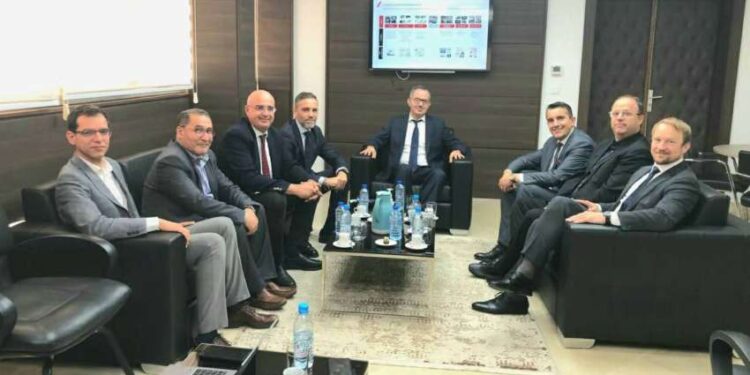A high -level delegation of the Spanish automaker Seat went to Tunis to explore the prospects for industrial cooperation with Tunisia. The key: concrete opportunities for integration into the world automotive value chain.
The Spanish automaker SEAT, a subsidiary of the Volkswagen group, could soon strengthen its industrial presence in Tunisia. A strategic meeting was held in Tunis between the Director General of FIPA (External Investment Promotion Agency) and a Delegation of Seat led by Marc Riera Schöngarth, Vice-President of the brand’s purchases.
The visit marks an important step in efforts to consolidate industrial relations between Seat and Tunisia, especially in the field of car components, booming sector in the country.
A Tunisian sector with recognized capacities
At the heart of exchanges: examining collaboration opportunities, in particular via a further integration of Tunisia into the supply chain of the Spanish manufacturer. FIPA has highlighted the country’s advantages: an attractive regulatory framework, a skilled workforce, and a diversified industrial ecosystem.
The automotive component sector in Tunisia now has more than 280 companies, which employ nearly 100,000 people. In 2023, this sector generated export turnover around three billion euros, which confirms its ability to respond to international standards in terms of quality, cost and delay.
A joint delegation with Ennakl Automobiles
The SEAT delegation was accompanied by ENNAKL AUTOMOBILES managers, the brand’s official distributor in Tunisia. Were present: Abdellatif HMAM (Chairman of the Board of Directors), Anouar Ben Ammar (Managing Director) and Habib Lasram (Deputy Managing Director).
This strategic collaboration could open the way to direct industrial investments on the part of SEAT or its subcontractors in Tunisia, in particular in the manufacture of electronic components, mechanical systems or even on-board accessories.
This approach is part of a logic of geographic diversification of suppliers and rapprochement of European market production sites, at a time when global supply chains are seeking to reduce the risks linked to international tensions and logistics costs.
Tunisia, with its geographic proximity to Europe, its free trade agreements and its growing specialization in the automotive trades, appears as a natural strategic partner.
A dynamic to follow
If no concrete announcement has yet been made, this meeting testifies to an increasing interest in large automotive groups for the Tunisian industrial ecosystem, in search of competitiveness and resilience.
The coming months will be decisive to assess the continuation given to these exchanges. But the signal is clear: Tunisia is positioned as a credible production platform, capable of attracting major players in the world automotive sector.








